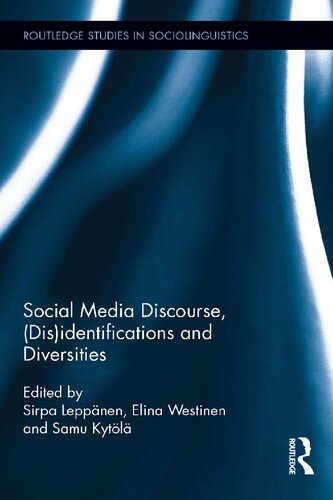

Most ebook files are in PDF format, so you can easily read them using various software such as Foxit Reader or directly on the Google Chrome browser.
Some ebook files are released by publishers in other formats such as .awz, .mobi, .epub, .fb2, etc. You may need to install specific software to read these formats on mobile/PC, such as Calibre.
Please read the tutorial at this link: https://ebookbell.com/faq
We offer FREE conversion to the popular formats you request; however, this may take some time. Therefore, right after payment, please email us, and we will try to provide the service as quickly as possible.
For some exceptional file formats or broken links (if any), please refrain from opening any disputes. Instead, email us first, and we will try to assist within a maximum of 6 hours.
EbookBell Team

4.8
64 reviewsThis volume serves as an in-depth investigation of the diversity of means and practices that constitute (dis)identification and identity construction in social media. Given the increasing prevalence of social media in everyday life and the subsequent growing diversity in the types of participants and forms of participation, the book makes the case for a rigorous analysis of social media discourses and digital literacy practices to demonstrate the range of semiotic resources used in online communication that form the foundation of (dis)identification processes. Divided into two major sections, delineating between the (dis)identification of the self across various social categories and the (dis)identification of the self in relation to the "other", the book employs a discourse-ethnographic approach to highlight the value of this type of theoretical framework in providing nuanced descriptions of identity construction in social media and illuminating their larger, long-term societal and cultural implications. This volume is a key resource for researchers, and students in sociolinguistics, discourse studies, computer-mediated communication, and cultural studies.